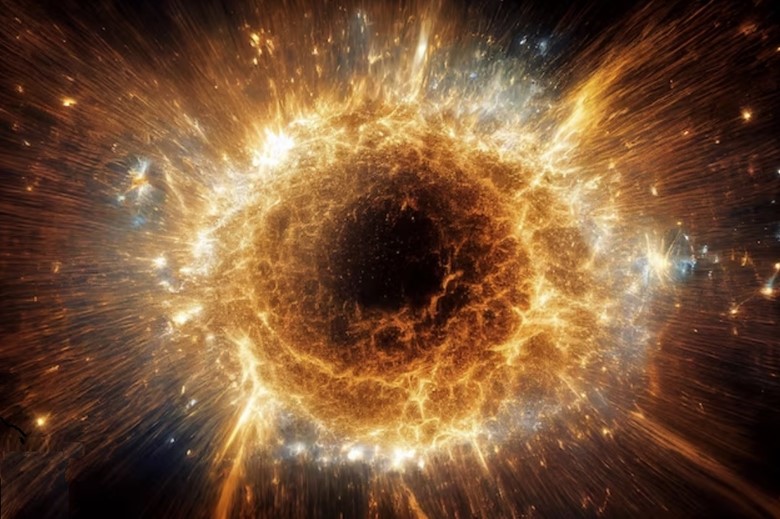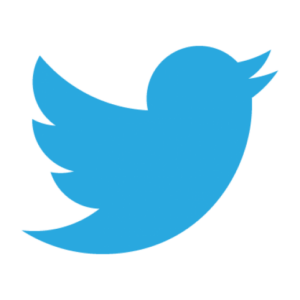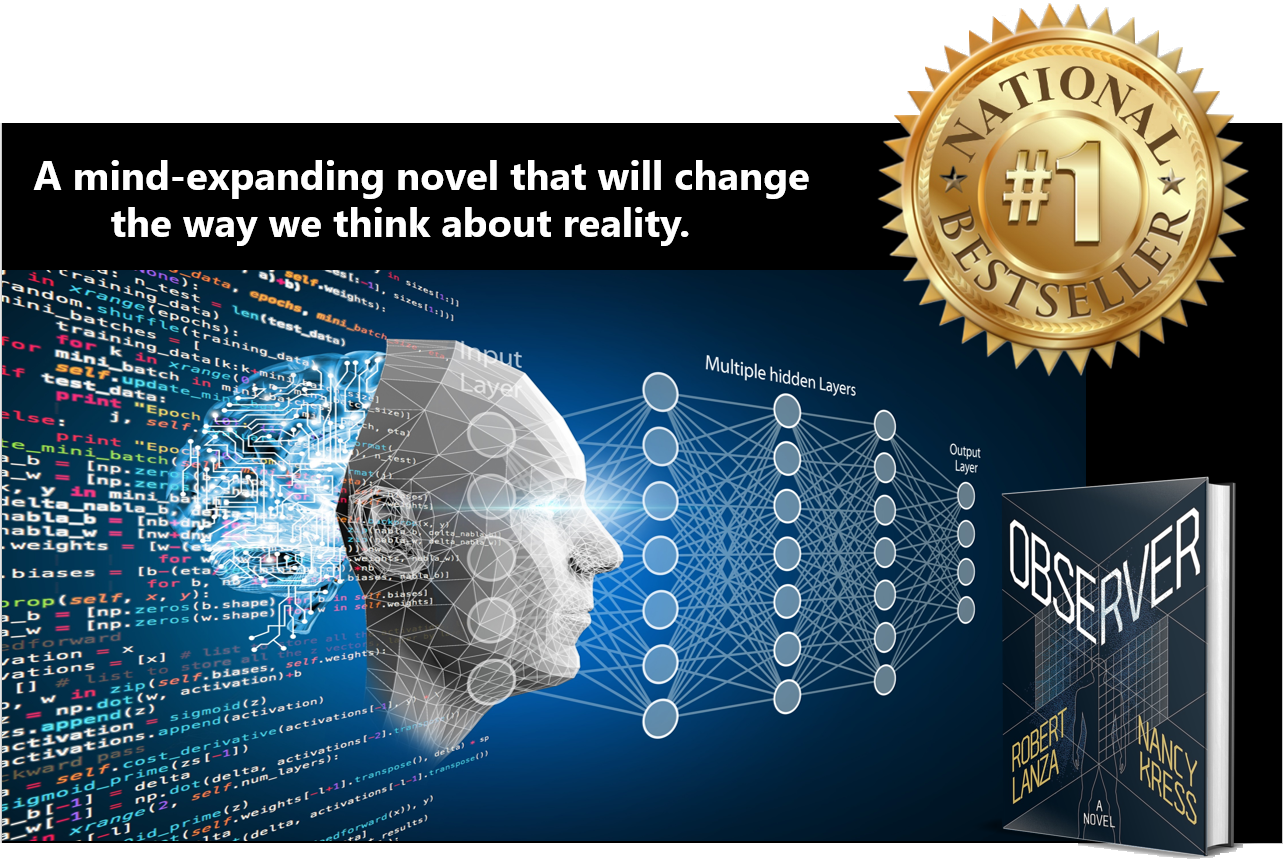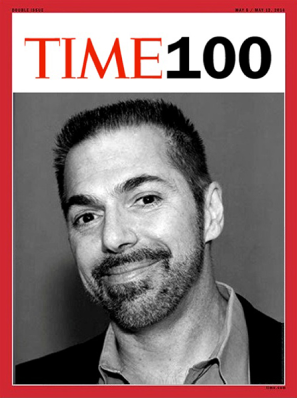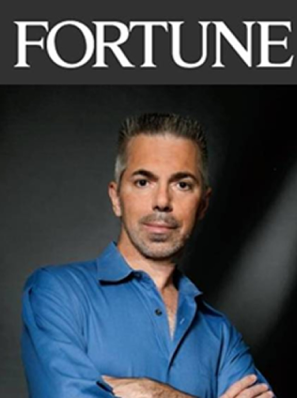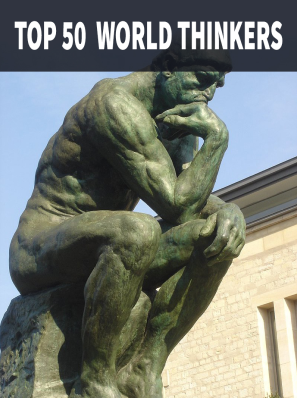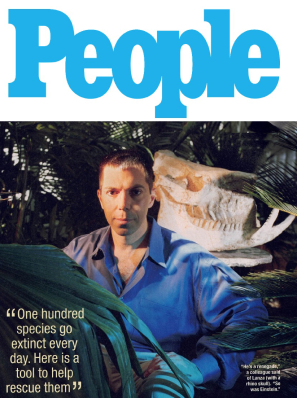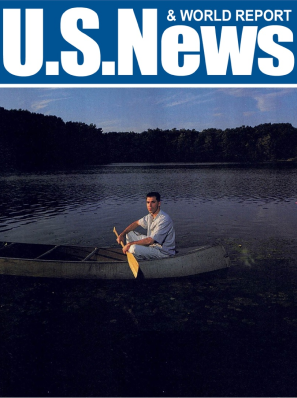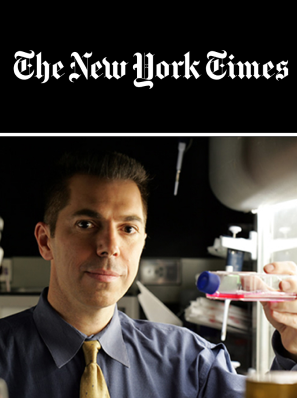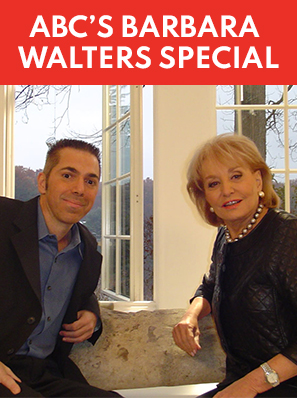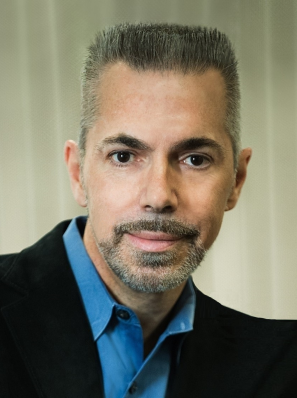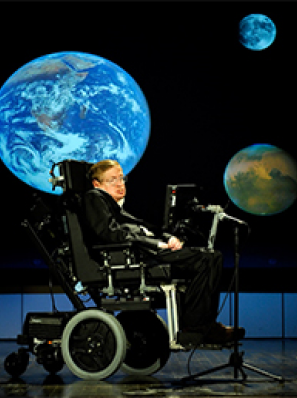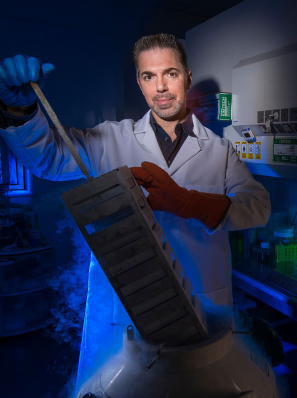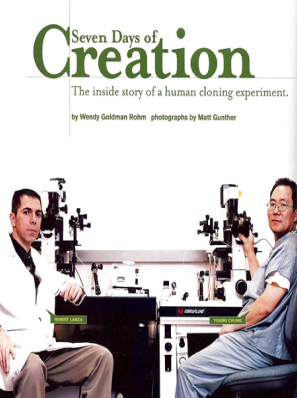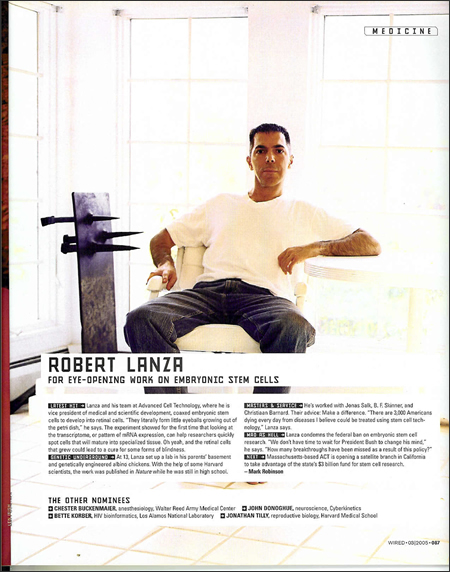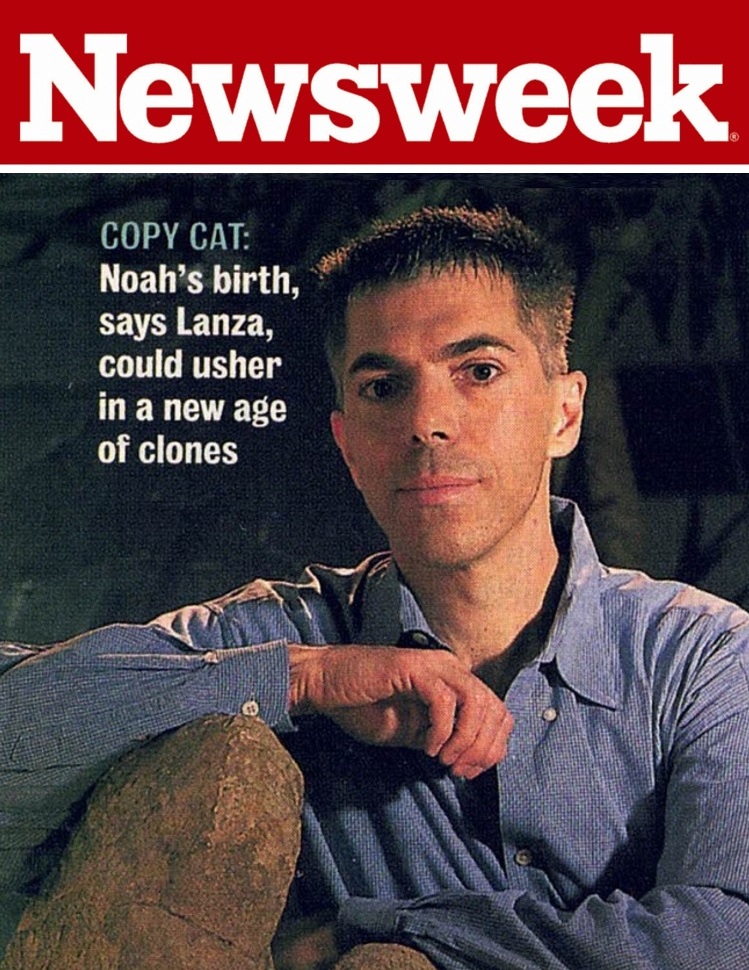Why are we here? Where did it all come from ― the laws of nature, the stars, the universe? Humans have been asking these questions forever, but science hasn’t succeeded in providing many answers — until now.
As a young boy I found myself playing on the center of God’s stage; from some hidden celestial vantage point, so I thought, I was being scrutinized and watched by the Supreme Creator, perhaps almost as narrowly as I, as a medical student with a microscope, would one day scrutinize the cells growing in a petri dish. If, indeed, God had made the world, then who made God?
This was long ago, before I had seen micrographs of DNA, or the tracks of matter and antimatter created in a bubble chamber by the collision of high-energy particles. After 20 years of formal education I had succeeded in performing a kind of exorcism – I had replaced a deep religious mystery with, well, a deep scientific mystery. In my new sophistication I began to ask less naive questions: If, indeed, the universe exists because of the laws of nature, then who created those laws? And if the universe arose from the Big Bang, then what happened before it?
Science, instructive though it may be, had merely put back the problem of origins by a step.
If I had not been busy on a series of scientific papers with psychologist B.F. Skinner, which demonstrated the qualitative similarities between humans and two White Carneaux pigeons named Jack and Jill, I might have gone away from university believing that the world had become more rational and that science had provided more answers to the ultimate questions than religion. The colors differ, this is true. In one age we believed the world was a great ball resting on the back of a turtle; in the next, a universe that just popped into existence, hot and expanding, out of nowhere. In one age angels pushed and pummeled the planets about; in the following time everything is a meaningless accident. We exchanged a world turtle in one era for a Big Bang in another.
The first cause
The notion of everything arising mysteriously from “nothing” never seemed like a thesis any teacher would award with a passing grade. Loren Eiseley, the great naturalist, once said that scientists “have not always been able to see that an old theory, given a hairsbreadth twist, might open an entirely new vista to the human reason.” Cosmic evolution turns out to be the perfect case of this. Amazingly, it all makes sense if you assume that the big bang is the end of the chain of physical causality, not the beginning. As explained in Observer, the observer is the first cause, the vital force that collapses not only the present, but the cascade of spatiotemporal events we call the past. The “past” is simply the spatiotemporal logic of the self. Stephen Hawking, the famed physicist, was right when he said, “There’s no way to remove the observer—us—from our perception of the world … the past, like the future, is indefinite and exists only as a spectrum of possibilities.”
Like most of us, Dr. Caroline Soames-Watkins also believed that the world around her existed as a hard, cold reality ticking away like a clock—until she learned different. Caro, the protagonist of my new novel co-written with award-winning sci-fi author Nancy Kress, also thought she had the world figured out. Not her personal world, which has been upended by controversy, but how the physical world works and how her consciousness operates within it. Broke and without a job, she accepts a job offer from her great-uncle, a Nobel Prize-winning scientist who runs a research facility studying the space between biology and consciousness—between the self and what we assume is reality. They are on the verge of a humanity-altering discovery, which throws Caro into danger—love, loss, and death—that she could never have imagined possible.
Observer takes Caro on a mind-expanding journey to the very edge of science, challenging her to think about life and the power of the imagination in startling new ways. The ideas behind Observer are based on real science, starting with the famous two-slit experiments, in which the presence of an observer affects the path taken by a sub-atomic particle, and moves step-by-step into cutting-edge science about quantum entanglement, on-going experiments applying quantum-level physics to the macro-world, the multiverse, and the nature of time and consciousness itself.
The problem of origins
Observer sheds light on the big question—the problem of origins—that has long eluded philosophers and scientists alike. What came before the Big Bang? Or if consciousness is primary, what came before consciousness? Publishers Weekly and Kirkus Reviews both gave Observer prestigious “starred reviews,” the later calling it “Mind-bending… A novel full of life-affirming ideas that’s likely to make readers rethink concepts of time and space.”
The problem of origins only occurs if you look at the world through the eyes of the old paradigm. It only arises due to an incomplete understanding of physics. The world we perceive is defined by us. In fact, I recently published a scientific paper on this topic (it was the Cover story) in Annalen der Physik, which also published Einstein’s theories of special and general relativity. In his papers on relativity, Einstein showed that time was relative to the observer. This paper took this one step further, arguing that the observer creates it. The paper shows that a brainless observer does not merely fail to experience time—time does not exist for such an observer in any sense. Indeed, without a conscious observer, the arrow of time—in fact, time itself—simply doesn’t come into existence in the first place.
Time is a relational concept—one event relative to another. ‘Before’ and ‘after’ have no meaning without association to another point. Thus, time requires an observer with memory, since without that you can’t have the relational concept that underlies the whole idea of ‘the arrow of time.’ A simple example: your cell phone rings. But the ring doesn’t happen until you compare its sound to the silence of the second before.
As Dr. Weigart explains to Caro in Observer, the question of where things came from “is actually a bit daft. Since ‘before’ and ‘after’ have no absolute meaning independent of the observer, the question of what came ‘before’ an independent observer is completely meaningless. It’s like asking what’s north of the north pole, or whether death is a state of ‘being nothing.’ Most people do imagine death as nothing, but the verb ‘to be’ so completely contradicts ‘nothing’ that you might as well announce you’re going to ‘run not run.’”
The observer creates the past, not the other way around. Which, incidentally, was what Stephen Hawking meant when he said “The past, like the future, is indefinite and exists only as a spectrum of possibilities.”
Observer determines the past
Consider an experiment published in the prestigious scientific journal Science. Scientists in France shot photons into an apparatus and showed that what they did could retroactively determine what happened in the past. You heard that right! As the photons passed a fork in the apparatus, they had to decide whether to behave like particles or waves when they hit a beam splitter. Later on—after they had traveled 50 meters past the fork—the experimenter could randomly switch a second beam splitter on and off. It turns out that what the observer decided at that point determined what the particle actually did at the fork in the past. At that moment, the experimenter chose his past.
A worldview that at last makes sense
By the time Caro finishes her journey in Observer, her views of the universe have shifted. Hints of the biocentric nature of the universe have been made by some of the greatest scientists in modern physics, including Heisenberg, Planck, Schrodinger, and Bohr—the founders of quantum mechanics—among many others. As Caro, a realistic and pragmatic woman, moves through her adventures in friendship, love, and danger, she experiences first-hand the truth that those eminent physicists already knew.
Adapted from Observer by Robert Lanza and Nancy Kress (The Story Plant).
Lanza’s new novel “OBSERVER” lays out these ideas to a broader audience, and through storytelling brings to life the science behind the astounding fact that time, space, and reality itself, all ultimately depend upon us, the observer.
“Mind-bending… A novel full of life-affirming ideas”—Kirkus Reviews (Starred Review)
“A brilliant Crichtonesque thriller”—Publishers Weekly (Starred Review)
In OBSERVER, scientist Robert Lanza, one of Time Magazine’s “100 Most Influential People,” is joined by 8-time Nebula and Hugo Award-winning author Nancy Kress to confront the mysteries in the space between biology and consciousness, between the self and what we assume is reality. OBSERVER takes you on a mind-expanding journey to the very edges of science. It will thrill you, inspire you, and lead you to think about life and the power of the imagination in startling new ways.
“The cutting edge of science tipping into something new and marvelous … a startling, fascinating novel”―Kim Stanley Robinson, New York Times Bestselling author
“Robert Lanza has taken the gigantic step of incorporating his ideas into a science fiction novel with Nancy Kress. Brilliant … a riveting and moving story”―Rhonda Byrne, #1 New York Times Bestselling author
“A thrilling story you won’t soon forget”―Robin Cook, #1 New York Times Bestselling author
“OBSERVER is the best of science and fiction—an intellectual adventure with real heart”―Daryl Gregory, award-winning author.
